40 what is the main force that drives deep ocean currents
What is the main force that drives deep ocean currents ... Jan 17, 2019 · answered What is the main force that drives deep ocean currents Advertisement williamabigan is waiting for your help. Add your answer and earn points. Answer 5.0 /5 5 Fluerie Hello there! Deep ocean currents are generally driven by density differences in water. This is normally caused by salinity differences. Hope this helps! Thank you what is the driving force for surface ocean currents - Top ... 3 What is the main driver of near surface ocean currents? ... 14 What is the driving force of deep currents quizlet? ... The major driving force of surface currents is the wind. The winds that drive the Gulf Stream are the Westerlies.
What causes ocean currents?: Ocean Exploration Facts: NOAA ... These currents move water masses through the deep ocean—taking nutrients, oxygen, and heat with them. Occasional events such as huge storms and underwater earthquakes can also trigger serious ocean currents, moving masses of water inland when they reach shallow water and coastlines.
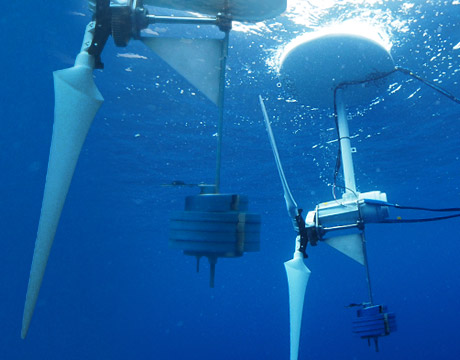
What is the main force that drives deep ocean currents
(PDF) Fundamentals of Fluid Mechanics 7th Edition - Munson ... Enter the email address you signed up with and we'll email you a reset link. What drives surface currents? - Socratic 1) Oceanic currents are driven by several factors. One is the rise and fall of the tides, which is driven by the gravitational attraction of the sun and moon on Earth's oceans. Tides create a current in the oceans, near the shore, and in bays and estuaries along the coast. These are called "tidal currents." Thermohaline Circulation - Currents: NOAA's National Ocean ... Winds drive ocean currents in the upper 100 meters of the ocean's surface. However, ocean currents also flow thousands of meters below the surface. These deep-ocean currents are driven by differences in the water's density, which is controlled by temperature ( thermo) and salinity ( haline ). This process is known as thermohaline circulation.
What is the main force that drives deep ocean currents. Chapter 15 Flashcards - Quizlet wind that blows across its surface influence surface currents the primary driving force of surface ocean currents is the distribution of major landmasses - gravity and friction between the ocean and the wind that blows across its surface influence surface currents How does the Coriolis effect influence ocean currents? The Major Ocean Currents of the World - Earth How The major ocean currents roughly follow a common set of circular paths. While wind drives surface ocean currents from the Coriolis effect, temperature and salt gradients mostly influences deep ocean currents. Why water moves in a circular pattern The sun heats water at the equator. The wind and sun make ocean currents move. Ocean thermal energy conversion - Wikipedia Ocean Thermal Energy Conversion (OTEC) uses the ocean thermal gradient between cooler deep and warmer shallow or surface seawaters to run a heat engine and produce useful work, usually in the form of electricity.OTEC can operate with a very high capacity factor and so can operate in base load mode.. The denser cold water masses, formed by ocean surface water … What is the main force that drives deep ocean currents ... Nov 03, 2020 · It provides a protective habitat for many maturing species. The kelp is consumed by sea urchins which are consumed by sea otters. Over fishing in the ocean reduced the food for killer whales so they came close to the coast to prey on the sea otters. The drop in sea otters caused a rise in sea urchins which greatly reduced the kelp.
Solved Describe 3 of the forces that drive the DEEP ocean ... Question: Describe 3 of the forces that drive the DEEP ocean currents and EXPLAIN the effects of each. Describe the characteristics of a Western Boundary Current and name 2 of these currents. Describe the equatorial counter-current and the conditions allow it to occur. List or describe the 3 wind factors that affect the growth of a wind wave. Ocean Currents and Climate - University of Southern California Ocean Currents and Climate. 1. Surface Currents -- Surface Circulation. These waters make up about 10% of all the water in the ocean. These waters are the upper 400 meters of the ocean. 2. Deep Water Currents -- Thermohaline Circulation. These waters move around the ocean basins by density driven forces and gravity. 1.what Is the Force That Drives the Ocean Currents?What Is ... Thermohaline circulation moves ocean currents deep down below the surface. The currents are navigated by the variances in the water's density, which is regulated by temperature and salinity. A single molecule of water moved by thermohaline may take many years to move entirely during the earth's ocean. 4. HOW ARE TIDES PRODUCED? Answer Ocean Currents - National Geographic Society In contrast to wind-driven surface currents, deep-ocean currents are caused by differences in water density. The process that creates deep currents is called thermohaline circulation —"thermo" referring to temperature and "haline" to saltiness. It all starts with surface currents carrying warm water north from the equator.
What is a current? Oceanic currents are driven by three main factors: 1. The rise and fall of the tides. Tides create a current in the oceans, which are strongest near the shore, and in bays and estuaries along the coast. These are called "tidal currents." Tidal currents change in a very regular pattern and can be predicted for future dates. PDF Activity: Ocean Currents - Weebly Deep currents are caused by the differences in water densities. Because all the oceans are connected, all ocean currents interact to form a continuous worldwide pattern of water circulation. The currents flow in certain patterns throughout the w orld. 7 Factors of Ocean Currents - Earth and Space Surface currents make up about 10% of ocean water, while the rest of it (90%) are the deep-ocean currents. There are two types of forces (primary and secondary forces) that affect the creation of ocean currents. The primary forces include solar heating, winds, thermal expansion and contraction, and density differences. ocean current - Two types of ocean circulation | Britannica ocean circulation derives its energy at the sea surface from two sources that define two circulation types: (1) wind-driven circulation forced by wind stress on the sea surface, inducing a momentum exchange, and (2) thermohaline circulation driven by the variations in water density imposed at the sea surface by exchange of ocean heat and water …
What Are Two Primary Forces Behind Ocean Currents ... What is the primary force that drives ocean deep currents? However, ocean currents also flow thousands of meters below the surface. These deep-ocean currents are driven by differences in the water's density, which is controlled by temperature (thermo) and salinity (haline).
ES 10 Lecture 17: The Oceans - University of California ... Now how does wind drive water. It is simple - it pushes it! However, water also is affected by the coriolis force and so the great ocean currents are big circles. And here they are: Density driven currents . The other main driving force for ocean currents is density. When water gets saltier and colder, it gets denser and sinks.
Ocean currents: Forces Responsible For Ocean Currents ... Characteristics of Ocean Currents arise due to the interplay of the above-mentioned factors. The general movement of the currents in the northern hemisphere is clockwise and in the southern hemisphere, anti-clockwise. This is due to the Coriolis force which is a deflective force and follows Ferrel's law.
Ocean Gyre - National Geographic Society The Earth’s rotation deflects, or changes the direction of, these wind-driven currents. This deflection is a part of the Coriolis effect. The Coriolis effect shifts surface currents by angles of about 45 degrees. In the Northern Hemisphere, ocean currents are deflected to the right, in
Ocean currents - National Oceanic and Atmospheric Administration Aug 01, 2011 · Large-scale surface ocean currents are driven by global wind systems that are fueled by energy from the sun. These currents transfer heat from the tropics to the polar regions, influencing local and global climate. The warm Gulf Stream originating in the tropical Caribbean, for instance, carries about 150 times more water than the Amazon River.
ocean Flashcards | Quizlet surface currents follow the atmosphere patterns whats the main force that drives deep ocean currents water density what factors determine the density of the ocean water temp. and salinity what impact would the gulf stream current have on the climate in england and why? by bringing wARMTH INTO ENGLAND BC THE OCEAN WATER IS COMING FROM THE EQUATOR
Solved What are the two main types of global ocean ... - Chegg What are the two main types of global ocean currents and what forces drive each one? Who are the experts? Experts are tested by Chegg as specialists in their subject area. We review their content and use your feedback to keep the quality high. The two main types of global ocean currents are- Surface currents Deep-water currents The ….
Ocean Currents and Climate - National Geographic Society Ocean currents are located at the ocean surface and in deep water below 300 meters (984 feet). They can move water horizontally and vertically and occur on both local and global scales. The ocean has an interconnected current, or circulation, system powered by wind, tides, the Earth's rotation (Coriolis effect), the sun (solar energy), and ...
Satellite Applications for Geoscience Education In general, wind-driven currents dominate the upper ocean, and thermohaline circulation drives the movement of the deep ocean. How ocean currents are identified in satellite imagery Ocean surface currents that are warmer than the surrounding water they may have a thermal signature, that can be seen in (Advanced Very High Resolution Radiometer ...
Ten things that affect our climate – Science in School 11/06/2019 · Ocean currents and wind systems are important components of the climate system. As a result of differential heating, whereby the equator is hotter than the Earth’s poles, convection currents in the oceans and the atmosphere move thermal energy towards the poles. This is the driving force behind atmospheric circulation and the thermohaline ...
Understanding Surface Currents vs Deep Ocean Currents There are many factors that cause ocean currents. Deep currents are driven by temperature and water density/salinity. Of course, deep currents impact surface currents, which carry warm water to the poles. Surface currents are also driven by global wind systems fueled by energy from the sun.
Deep Ocean Currents (Global Conveyor Belt) | HowStuffWorks Apr 29, 2008 · This deep- water current is known as the global conveyor belt and is driven by density differences in the water. Water movements driven by differences in density are also known as thermohaline circulation because water density depends on its temperature (thermo) and salinity (haline).
Currents, Waves, and Tides | Smithsonian Ocean Deep Currents. The ocean is connected by a massive circulatory current deep underwater. This planetary current pattern, called the global conveyor belt, slowly moves water around the world—taking 1,000 years to make a complete circuit. It is driven by changes in water temperature and salinity, a characteristic that has scientists refer to the ...
Thermohaline Circulation - Currents: NOAA's National Ocean ... Winds drive ocean currents in the upper 100 meters of the ocean's surface. However, ocean currents also flow thousands of meters below the surface. These deep-ocean currents are driven by differences in the water's density, which is controlled by temperature ( thermo) and salinity ( haline ). This process is known as thermohaline circulation.
What drives surface currents? - Socratic 1) Oceanic currents are driven by several factors. One is the rise and fall of the tides, which is driven by the gravitational attraction of the sun and moon on Earth's oceans. Tides create a current in the oceans, near the shore, and in bays and estuaries along the coast. These are called "tidal currents."
(PDF) Fundamentals of Fluid Mechanics 7th Edition - Munson ... Enter the email address you signed up with and we'll email you a reset link.


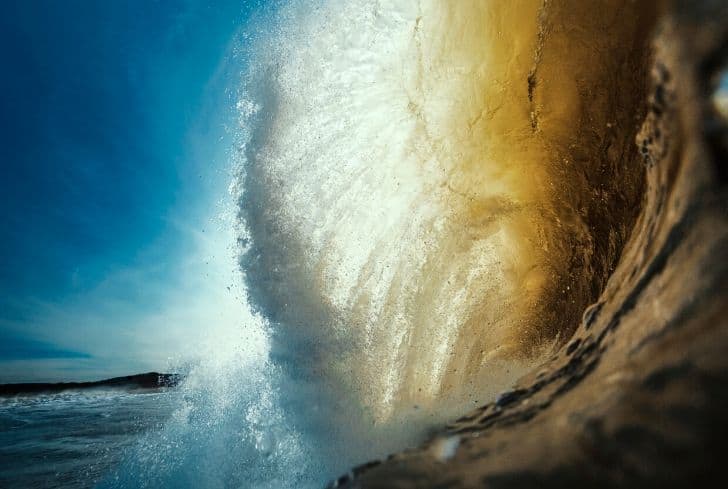

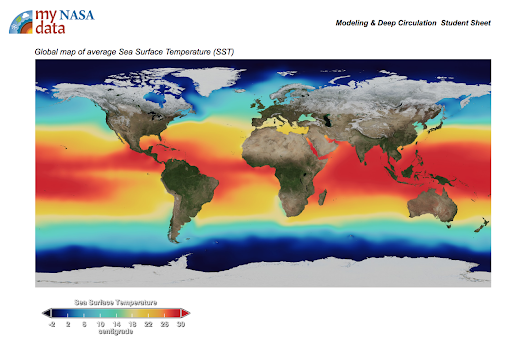

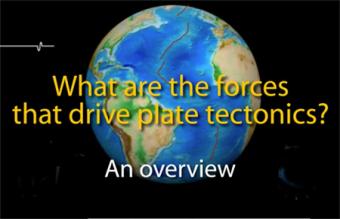








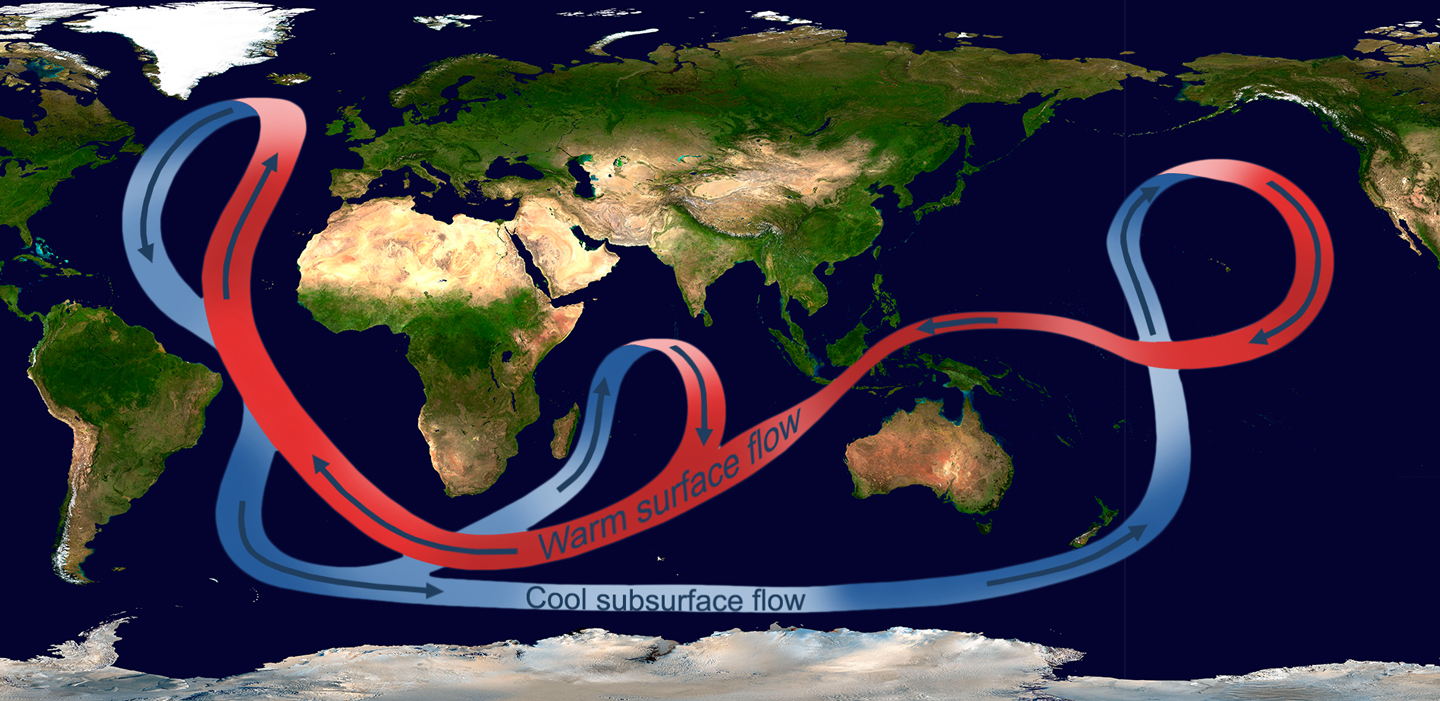



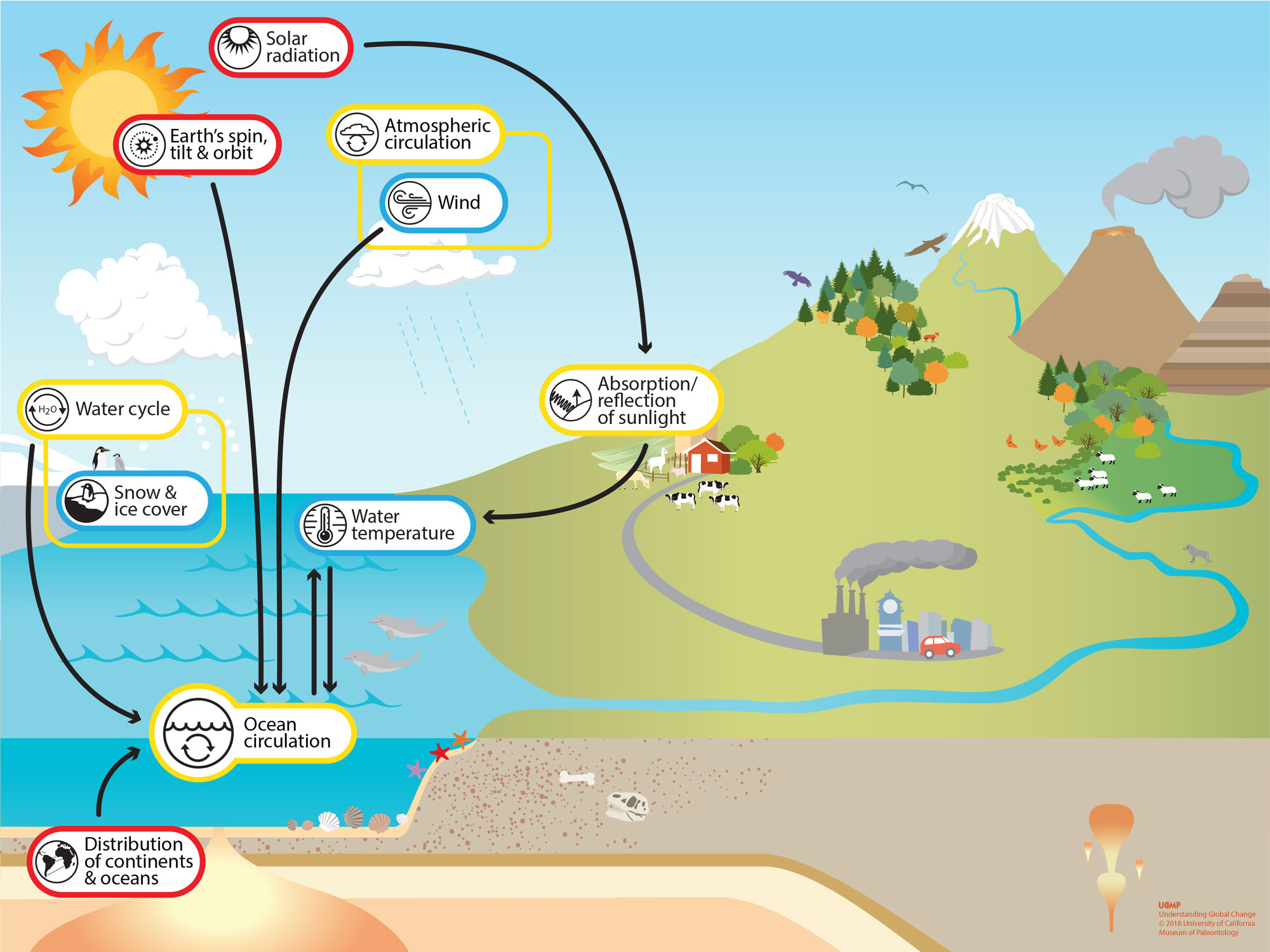

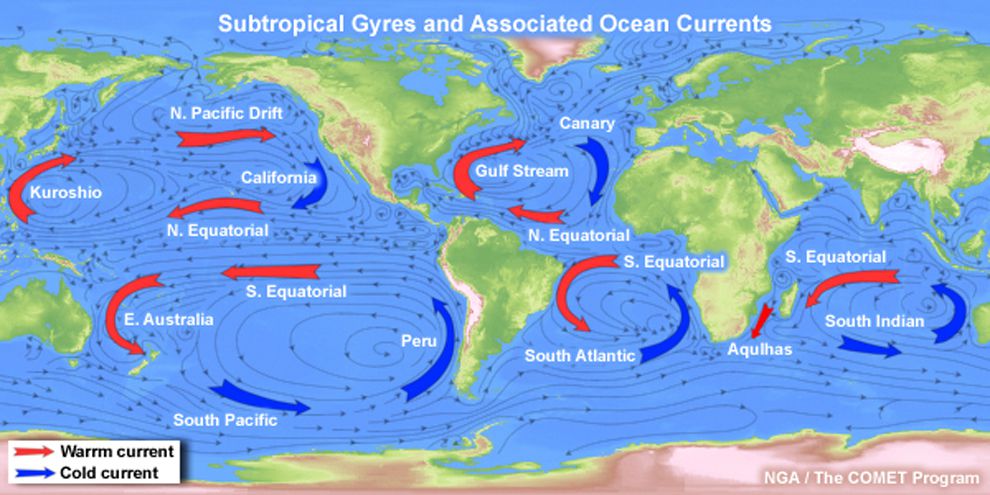



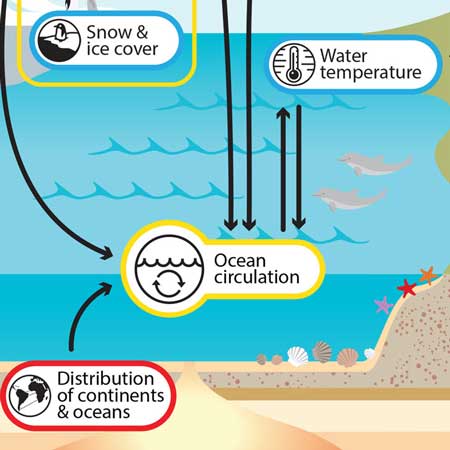
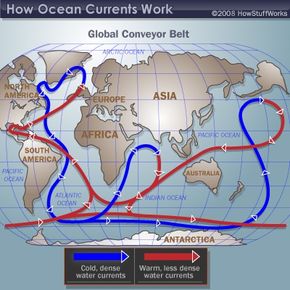
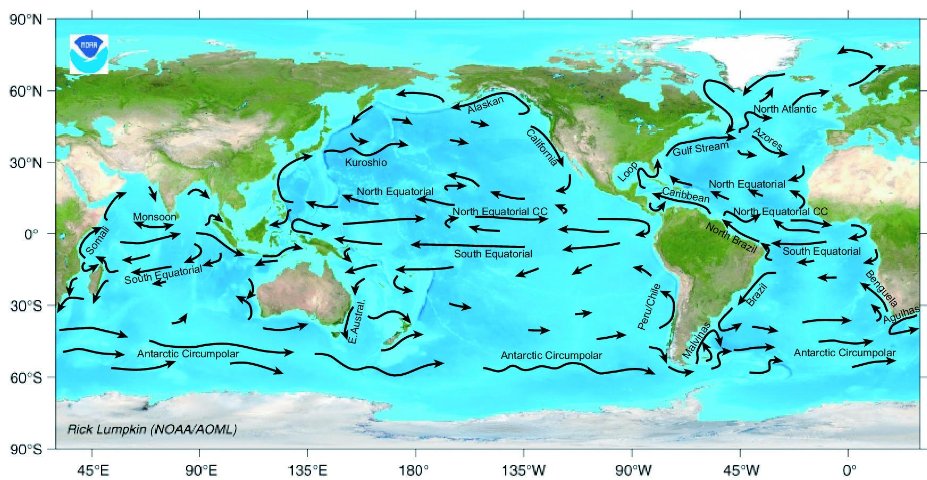
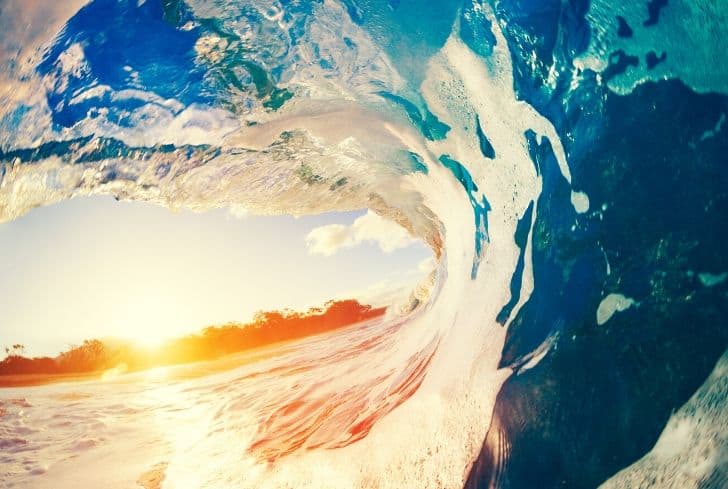

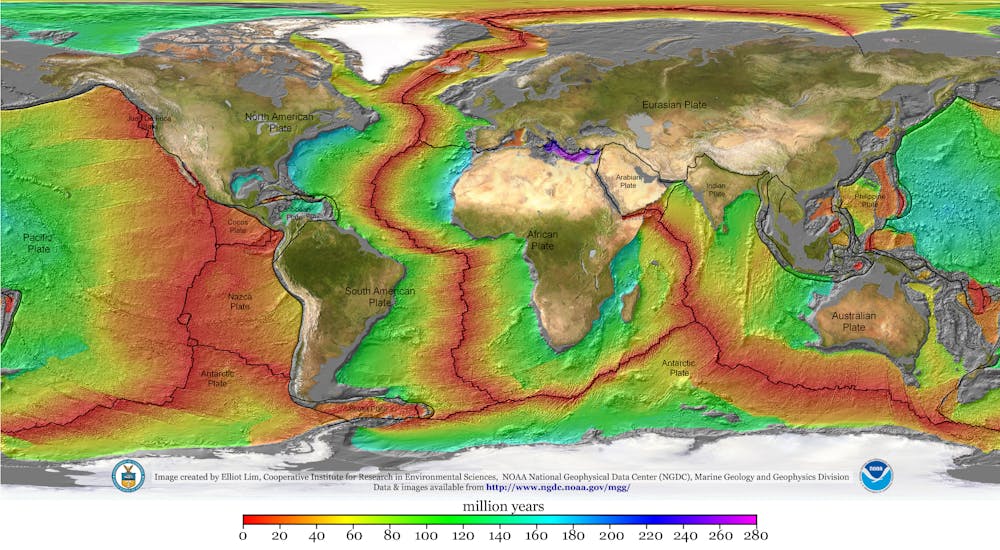

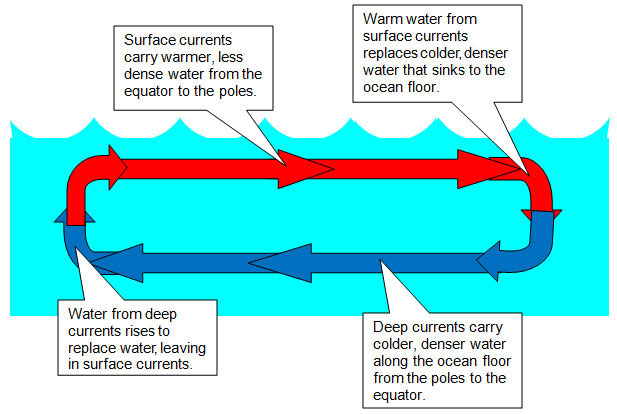
0 Response to "40 what is the main force that drives deep ocean currents"
Post a Comment